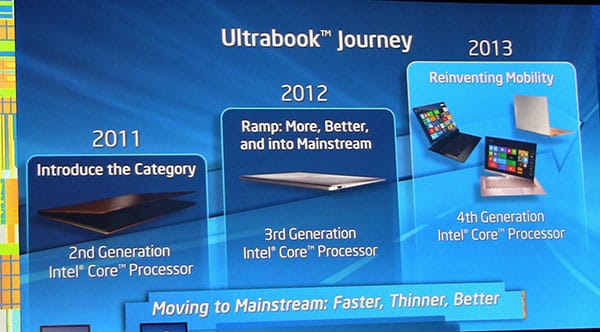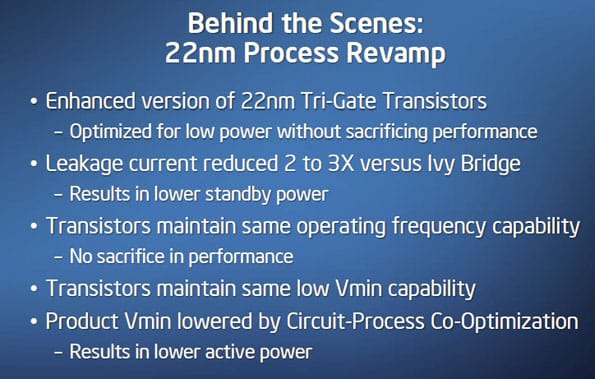Intel is gearing up to finally launch its next-generation chip line-up, based on Haswell microarchitecture. The company has made some tall claims about the new line-up, citing that Haswell will be able to furnish 50% improved battery life, compared to Ivy Bridge chips. If this proves to be true, it may render Haswell-based laptops a winner.
The problem with Intel, right now, is simply that the company hasn’t been able to put up with the fierce needs of the mobile market. Intel is certainly a winner in the PC arena, but the PC industry is declining sharply and the future belongs to mobile devices.
Although Intel has had relatively little success in the mobile market so far, the company’s fortunes may change with the Haswell chips. The 22nm microarchitecture packs quite a punch and the sheer performance that Intel is promising to deliver can turn the tables.
Not only has Intel trimmed down the size and provided extra-ordinarily better performance in Haswell, the company is also promising a huge leap in terms of battery life. Compared to the last-generation chips from Intel, Haswell will provide 2x the graphics performance and yet, will be far more power efficient.
Power-efficiency is a key feature of Haswell, and this is something that tablet vendors eagerly look for in a processor. Intel was able to trim down power consumption in Haswell microarchitecture by moving the voltage regulator into the CPU package itself. The company calls this a ‘Fully Integrated Voltage Regulator’ (FIVR). At the same time, since the regulator has been moved from motherboard, it leaves more space on motherboard and essentially makes the Haswell chip occupy less space overall.
Given the excellent improvements that are a part of the Haswell line-up, we are sure that Intel will soon pose a stiff competition to other chip makers. And if the likes of ARM aren’t able to deliver something as good as Haswell soon enough, Intel stands a fair chance to win this battle.
Courtesy: Hot Hardware
[ttjad keyword=”kindle”]


